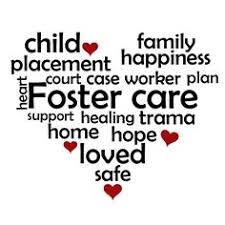Being a foster carer: The opportunities and challenges
- Learning for Life and Work

- May 4, 2020
- 2 min read
Updated: Dec 7, 2023
A foster carer is someone who takes on the role of a parent for an unspecified period of time. Sometimes, they can be referred to as foster parents. The foster carer will take a young person/child in to their home for maybe a day, a week, a month, a year, or until the child reaches the age of 18.
The opportunities included in being a foster carer include:
A feeling of self-satisfaction knowing that they are improving the life/lives of another child/children and supporting them through a difficult period of their lives. •
Government benefits are available to carers (foster reward payments and carers’ allowance) to help support both the child/children and themselves during the period of foster care.
Foster carers may become an asset to the local community which may improve their self-confidence, self-esteem and self-worth due to the essential and worthwhile role of being foster carers.
24-hour support is available for foster carers, if a carer encounters difficulty with a child/children such as running away, difficulties with the police or conflict between the child/children and foster carers are supported through this.
Foster care can be a temporary arrangement which means a carer may only have to commit for a short period of time.
However the challenges of being a foster carer are that:
The issues concerning the child/children may be very complex and require a lot of work by the carer in supporting the child/children.
The child/children will not be with the carer forever and this can be emotionally demanding on the foster carer.
The child/children may find it difficult settling in to a new family and so put pressure on the family dynamic in the home.
A carer may find it difficult bonding with a new child and this could cause stress for others in the home.

Check out the CCEA GCSE Learning for Life and Work Second Edition Textbook to find out more or check out: My Revision Notes: CCEA GCSE Learning for Life and Work: Second Edition
As an Amazon Associate I earn from qualifying purchases.




Comments